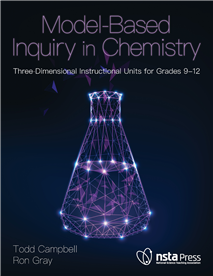All Teaching Strategies resources
Reports Article
Freebies and Opportunities for Science and STEM Teachers, May 20, 2025
By Debra Shapiro
Reports Article
Freebies and Opportunities for Science and STEM Teachers, May 13, 2025
By Debra Shapiro
Reports Article
Freebies and Opportunities for Science and STEM Teachers, May 6, 2025
By Debra Shapiro
Reports Article
Freebies and Opportunities for Science and STEM Teachers, April 29, 2025
By Debra Shapiro
Reports Article
Freebies and Opportunities for Science and STEM Teachers, April 22, 2025
By Debra Shapiro
Reports Article
Freebies and Opportunities for Science and STEM Teachers, April 15, 2025
By Debra Shapiro
Reports Article
Freebies and Opportunities for Science and STEM Teachers, April 8, 2025
By Debra Shapiro
Reports Article
Freebies and Opportunities for Science and STEM Teachers, April 1, 2025
By Debra Shapiro
Reports Article
Freebies and Opportunities for Science and STEM Teachers, March 25, 2025
By Debra Shapiro
Reports Article
Freebies and Opportunities for Science and STEM Teachers, March 18, 2025
By Debra Shapiro
Reports Article
Freebies and Opportunities for Science and STEM Teachers, March 11, 2025
By Debra Shapiro
Reports Article
Freebies and Opportunities for Science and STEM Teachers, March 4, 2025
By Debra Shapiro
Reports Article
Freebies and Opportunities for Science and STEM Teachers, February 25, 2025
By Debra Shapiro
NSTA Press Book
Model-Based Inquiry in Chemistry: Three-Dimensional Instructional Units for Grades 9-12
Transform your chemistry lessons from abstract concepts into engrossing learning experiences that help high school students understand what happens in the world. You can do it with Model-Based Inquiry in Chemistry: Three-Dimensional Instructional Uni...
By Todd Campbell, Ron Gray
Reports Article
Freebies and Opportunities for Science and STEM Teachers: February 18, 2025
By Debra Shapiro



